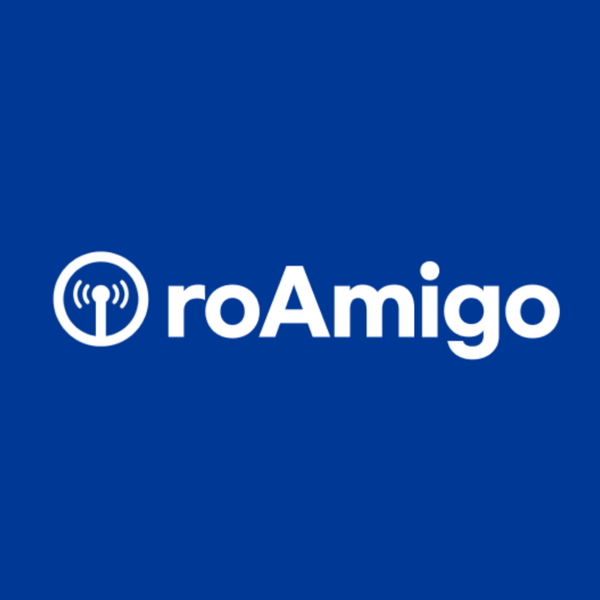When is Songkran? Understanding Thailand's Vibrant New Year Celebration
March 13, 2025 / 5 MINUTE READ
By Alice Lindeman
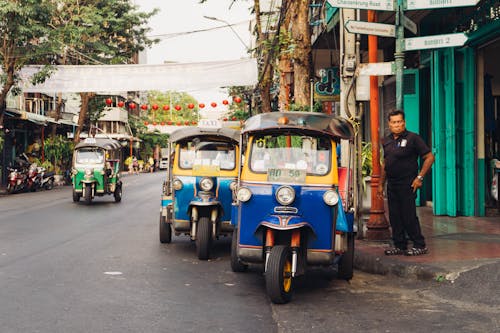
Remember those exhilarating water fights from your school summer holidays? Well, no one ever said you had to stop having them! Songkran is Thailand's incredibly unique New Year celebration, a time when the entire country takes to the streets for a massive, joyous water battle. It's all about washing away the bad luck from the past year and enthusiastically soaking up the spirit of a fresh new start. Sounds like fun, right? Read on to discover more about this incredible festival.
When is Songkran? Thailand's New Year Explained
Songkran is traditionally celebrated between April 13th and 15th each year. While the water throwing often spills over into the following week, officially, the main Songkran festivities conclude by the 16th. This period falls directly in the middle of Thailand's hottest season, with temperatures frequently soaring above 35°C—making it the perfect excuse for a nationwide water fight!
What is Songkran?
Songkran is Thailand's traditional New Year celebration, based on the Thai solar calendar. It's a time when everyday life pauses, and people reflect on what truly matters. And, as it turns out, what truly matters to many is joyfully drenching friends, family, and even complete strangers! Who would have thought?
Why is Songkran Celebrated? Unpacking its Meaning
While the lively water fights undoubtedly grab all the attention, Songkran possesses spiritual roots that run much deeper than just a glorified soaking. Stretching back hundreds of years, the festival originated from a Hindu celebration that marked the arrival of spring and the new harvest season. Buddhists later embraced and adapted this, transforming it into a new festival to commemorate the Thai New Year.
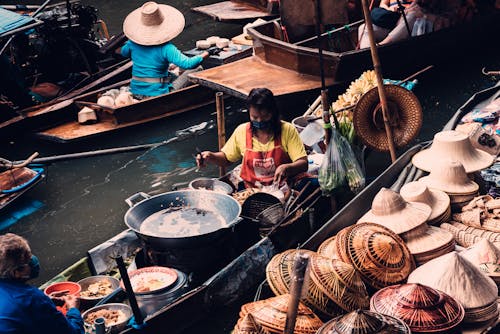
The word "Songkran" itself comes from Sanskrit – "saṅkrānti", meaning "to move." In the context of the Songkran festival, this refers to "the passing of" or an "astrological passage."
That's all very well, but what's with all the water? A great question! Water-throwing isn't solely about cooling off, though it's certainly a welcome relief in the scorching April heat. Traditionally, the water symbolizes a cleansing—the washing away of sins and bad luck from the previous year. Consider it a spiritual spring cleaning: out with the old, in with the new.
Family also plays a significant role in the celebrations. Thai people traditionally return to their hometowns during Songkran to spend quality time with loved ones, much like many cultures observe family gatherings during major holidays. So, while you may initially be drawn to the exhilarating water fights, it's worth taking a moment to appreciate the deeper themes of renewal and spiritual cleansing that underpin the festival.
How is Songkran Celebrated?
Songkran festivities typically commence with a thorough spring cleaning. Homes are scrubbed from top to bottom, and public spaces are meticulously cleaned in preparation for the new year. This is another more literal and practical way of leaving the previous year behind to welcome the new.
Then, things get a bit more chaotic! Streets transform into vibrant, watery battlegrounds. Pickup trucks loaded with barrels of water patrol the streets, while revelers armed with water guns and buckets drench anyone within range. Everyone participates—tourists and locals alike—creating a unique and unifying experience where no one is safe from a good old soaking.
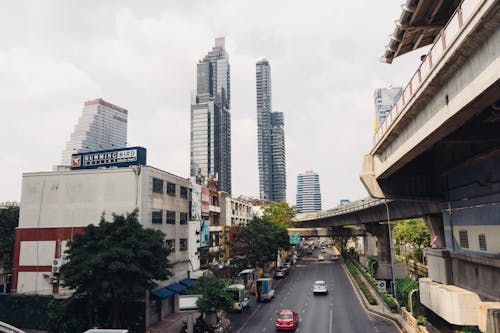
Regional Takes on Songkran Regional variations add distinctive touches to the celebrations. In northern Thailand, the moat surrounding Chiang Mai's Old City becomes a constant water source. Thousands of people line its banks to refill their buckets and water guns. The city's famous Tha Phae Gate transforms into a massive street party with music, food, and, of course, endless drenching.
In northern Thailand, you might also find yourself gently smeared with a paste made from white clay and water—a friendly gesture said to ward off evil. Each area proudly incorporates local traditions into the broader Songkran celebrations.
Essential Gear for Water Warfare Common weapons of choice include Super Soakers, buckets, hoses, and essentially anything that holds water. The fancier water guns often sell out before the festival begins, so early preparation is key unless you want to be caught defenseless in the crossfire.
Protect Your Electronics! Perhaps stating the obvious, but your phone, tablets, and laptops are just one quick splash away from ruin. Waterproof phone cases will be your best friend during Songkran. All electronics and valuables should be sealed in waterproof bags or left safely at your accommodation. You have been warned: that fancy new iPhone is only one quick splash from becoming an expensive paperweight!
Indulge in Songkran Cuisine Naturally, food plays an important role during Songkran—this is Thailand, after all! Families prepare special dishes like Pad Thai and Khao Chae (rice soaked in flower-scented water with various side dishes). Nam Prik Kapi (shrimp paste dip), Luk Chin Ping (grilled meatballs), and Khanom Chan (layered dessert) are commonly shared during family gatherings.
Embrace the Chaos! Songkran can be intense, especially for a jet-lagged, culture-shocked traveler experiencing it for the first time. But if you relax, let your hair down, and take it all in stride, you might just have the time of your life.
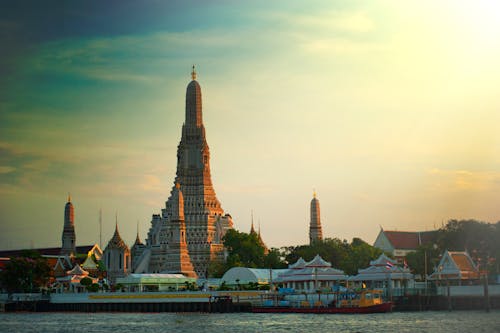
Participate in Religious and Cultural Traditions While the water fights inevitably steal the show, Songkran is also a deeply spiritual celebration. You'll observe people at temples making offerings, gently pouring water over Buddha statues, and performing various traditional rituals. As with any religious or cultural celebration, there are important considerations for observing or participating respectfully. Thai people are incredibly welcoming, but there are some unwritten rules:
- Throwing water over monks, small children, and elderly people is a significant no-no.
- Be gentle during water fights and avoid aiming at people's faces and eyes.
- Be mindful of your surroundings and dress respectfully when inside temples and religious buildings.
- Use your best judgment, and generally, following the lead of locals is an excellent approach.
One of the more poignant traditions is the Rod Nam Dam Hua ceremony, where young people pour scented water over the hands of their elders as a mark of respect and to ask for their blessings. It's a beautiful moment of connection and gratitude across generations that you might rarely witness in day-to-day life. People also visit Buddhist temples to offer food and listen to monks speak. Visitors often pour small cups of water over statues of Buddha to symbolize purification and cleansing—a way to show a little love to Buddha, after all.
When Should UK Travellers Plan Their Songkran Experience?
If Songkran sounds exactly "up your street," aim to be in Thailand a day or two before celebrations officially begin on April 13th. This will give you time to recover from the long flight, familiarize yourself with your surroundings, and stock up on essential water guns and waterproof bags.

The three main days of the festival, April 13th to 15th, see the core festivities. The 13th is typically the most intense day of water-based mayhem. However, different regions have their own timetables. Chiang Mai often extends the festivities for up to a week, while Bangkok tends to stick closer to the official three-day period. Pattaya typically holds its main Songkran parade and activities—known as Wan Lai—on April 18th or 19th, offering latecomers a chance to join the fun.
Songkran Coincides with Peak Season Travel Be aware that Songkran falls during Thailand's peak tourist season. Accommodation prices surge, and availability plummets. Book your hotels and flights well in advance to avoid disappointment and exorbitant last-minute rates.
A word of warning for the unprepared: many businesses close during Songkran. Government offices, banks, and some restaurants shut their doors for the entire festival period. Street food vendors, however, usually remain open to feed the soaked masses, so you shouldn't go hungry!
Stay Connected with a RoAmigo eSIM
As you're meticulously planning your Songkran adventure, don't forget to prioritize staying connected. The last thing you want is to miss capturing that perfect slow-motion water fight video because you ran out of data!
RoAmigo offers the best eSIM for Thailand. Visit the RoAmigo store, select your data package, and start packing for your adventures. After all, getting thoroughly soaked is much more enjoyable when it's 35°C and part of a centuries-old tradition—not just another rainy Tuesday in Manchester!
Alice Lindeman is a Canadian content specialist who loves connecting with audiences through strategic storytelling.
